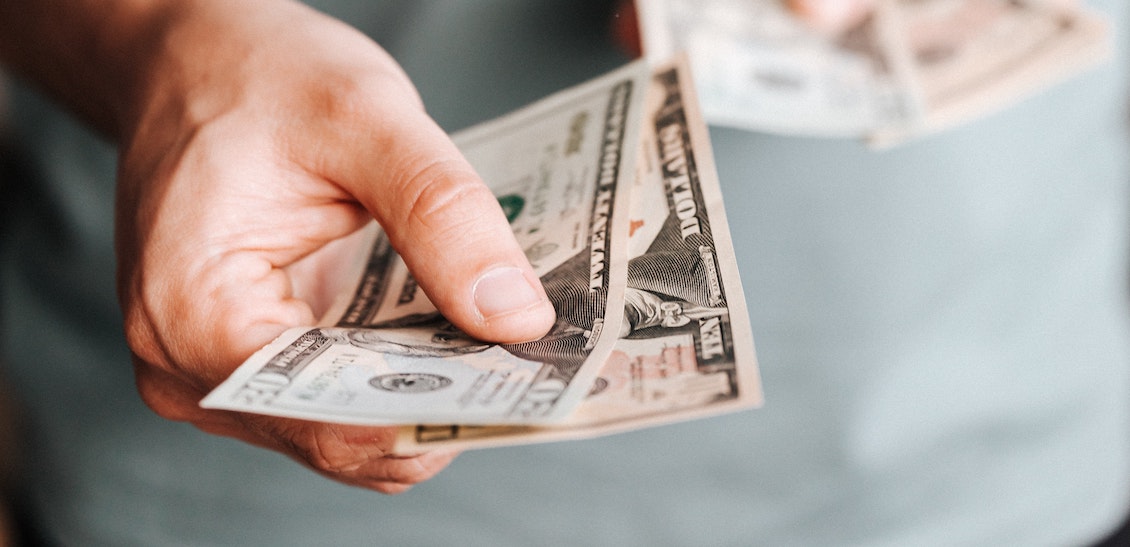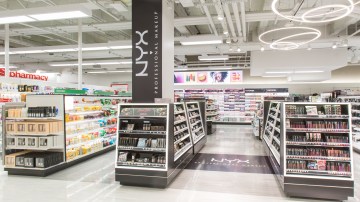This week I take a deep dive into inflation in the beauty sector, as well as The Lip Bar’s next steps as it celebrates a decade in business.
On December 19, 2021, as beauty brands pushed last-minute holiday deals and discounts, Prose hair care informed its customers via an email and social media posts that it was raising its prices the following day. The reason: inflation.
The topic of inflation has dominated the U.S. news cycle for months. In January, inflation within the consumer price index (which tracks what consumers pay for goods and services) increased by 7.5% over the prior 12 months. It was the highest level since February 1982, and put inflation above December’s 7% annual rate and well above the 1.8% annual rate for inflation in 2019 ahead of the pandemic. In a more tangible sense, that means the average U.S. household is spending an additional $276 a month because of inflation, according to the Wall Street Journal.
In the case of Prose, its custom-made hair-care products increased about 4% on average to $22.10-$44.20. The email, sent to an undisclosed number of subscribers, stated, “Due to the rising costs of ingredients and manufacturing, we are paying more to deliver the same product our community counts on. We’ve never raised prices in our four years in business, but we realized this was the only way to keep standards as high as you deserve.”
“It was a discussion [whether to send that email]. Ultimately, it was really important to be transparent, [in keeping with] our values,” said Megan Streeter, CMO of Prose. “The response that we received from our community was positive. We were pleasantly surprised because you never know how [price increases] are going to go.”
Streeter credited the customer reception to the fact that it was the brand’s first-ever price increase, as well as to the brand’s honest explanation for the increase. Prose has over 165 ingredients in its portfolio and saw cost increases across the board. For example, one of its raw material suppliers increased pricing by 5-7%.
Anthony Perdiago, COO of Prose, said that the brand’s cost increase per product varies, depending on how much an ingredient is used in each of its custom-made products. Prose’s shipping and freight have also increased dramatically, with individual shipping container costs increasing by over 50% over the last six months. Perdiago said Prose expects to see around an 11% increase in the cost of shipping individual units through the mail in 2022. He declined to share what the impact is on margins.
Prose is not the only beauty brand to increase its prices. P&G, which owns beauty brand Olay, informed distributors in Oct. 2021 that it would increase prices on several Olay Regenerist products by 6-20%, according to CNN. In January, Deciem announced on social media that it plans to increase prices on several products in its portfolio brands The Ordinary, NIOD and Hylamide on February 1. The company cited increases in raw ingredient prices, shipping and packaging, as well as employee wages, as reasons for the prices increases.
Nicolas Hieronimus, CEO of L’Oréal Group, said during the company’s fourth-quarter and full-year 2021 earnings call on February 9 that inflation would impact the company in the first half of 2022. The company will try to offset the impact through “value analysis, substitutions or negotiations” in its operations, as well as through AI-powered pricing tools and improvements to its marketing expenditures’ return on investment. And while increasing the prices of products is one tool in its arsenal, L’Oréal is also focusing on launching new products that bolster its gross margins and on aligning on strategies with retailers, since retailers are responsible for fixing prices.
Inflation has ultimately put pressure on margins. During Unilever’s fourth-quarter and full-year earnings results on February 9, it was noted that underlying operating margins in the beauty and personal care sector remained flat. High material inflation in palm oil was reported as having a particularly high impact on gross margin, despite the company increasing its product pricing.
The decision to raise prices typically comes after evaluating many factors. According to Itay Goldstein, a professor of economics and finance at Wharton School of Business at the University of Pennsylvania, companies will typically eat into their own margins for a bit before raising prices, though there is no best practice for how much or how long. And if competitors are not raising prices, that also contributes to whether a company decides to go there.
“It’s not always coming from production. Maybe operations or wages are going up, or it’s becoming more difficult to find workers and you need to pay them more [for example],” said Goldstein. “All these things push your profit margins down and create a pressure to start increasing prices.”
And inflation pressures will continue. Tracey Thomas Travis, evp and CFO for The Estée Lauder Companies, said in the second-quarter earnings for the fiscal year 2022 that inflation in the supply chain is expected to begin to more “prominently impact” the cost of goods in the third quarter, or January through March 2022. However, it was noted that pricing and cost mitigation efforts are helping the company to offset some of the inflation impacts for the fiscal year.
Yet, inflation and rising consumer prices have not materially impacted business earnings. E.l.f Beauty, The Estée Lauder Companies and L’Oréal Group all posted revenue increases. Both E.l.f. Beauty and The Estée Lauder Companies announced that they had raised their full-year earnings guidance. And Unilever’s beauty and personal care sales grew 3.8%, with 3% coming from increased prices and 0.8% coming from an increase in volume. Suffice to say, consumers keep buying.
There is some indication this will not remain the case, as inflation erodes consumer confidence. In February, a report from the private research group Conference Board found that consumer confidence fell for the second month in a row, from 111.1 to 110.5, according to the Wall Street Journal. However, beauty is historically an elastic and recession-proof category, meaning that while consumers may push off big purchases, beauty consumption is not usually negatively impacted.
Streeter said that, for its part, Prose continued to see month-over-month and day-over-day revenue growth after its price increases and that the subscription offering for Prose saw “minimal” negative impact. Unfortunately, for the consumer, prices historically don’t come back down.
“We haven’t seen [inflation impact consumer purchases] so far in any of our countries,” said Hieronimus on the L’Oréal earnings call. “L’Oréal is probably one of the best-equipped companies to address whatever evolution there is because of very wide price tiering… We can cover pretty much all levels of purchasing power.”
The Lip Bar celebrates 10-year anniversary and launches sub-brand Thread Beauty
The genesis of The Lip Bar in 2012 was inspired by CEO and founder Melissa Butler’s frustration with the beauty industry’s lack of diversity and focus on artificial and chemical-laden ingredients. Among accomplishments to date, The Lip Bar has sold over 2 million units, grown sales 70% year-over-year for the past six years, launched in Target and Walmart, and been worn by Michelle Obama.
Its 10-year anniversary also coincides with Butler’s launch of a new brand called Thread Beauty. The inclusive Gen-Z brand offers multi-use beauty sticks for the complexion and lips for $8. It will be sold through Target stores nationwide.
“Over the last 10 years, I have evolved as a founder and as a human. But I’m proud that we stuck to being a part of a beauty [movement] that wants brands to reflect who you are as a human, as opposed to transforming [yourself],” said Butler.
To celebrate the anniversary, The Lip Bar expanded its hero Bawse Lady matte lipstick line with a Bawse Bundle collection of popular products in the Bawse Lady shade. It also gathered a group of 10 women to honor with a Bawse Award on Feb. 24 and published a docuseries on YouTube starting Feb. 7 that traces Butler’s background and entrepreneurial journey.
“I want to continue to be the voice of the customer and allow them to see mirrors of themselves,” said Butler. “And I want to keep disrupting this industry and making sure people know that they don’t have to fit into a beauty box, whoever they are and wherever they are.”
Other beauty news
- The Ordinary launched hair care, which proudly includes sulfates, on Feb. 22.
- Glamnetic launches into Sephora with its magnetic lashes on Feb. 25.
- Children’s makeup brand Petite ‘n Pretty launched a gift set with luxury accessories designer Lele Sadoughi on Feb. 17.
- Actor Idris Elba and wife Sabrina announced S’Able Labs on Tuesday, with a capsule collection of genderless skin-care products set to arrive in the summer.
- Babor announced Tim Waller as co-CEO and group brand president on Feb. 18.
- BFA Industries, the owner of Ipsy and Boxycharm, raised $96 million from TPG Growth.
- Aria Growth Partners made a minority investment in The Inkey List on Feb. 18.




